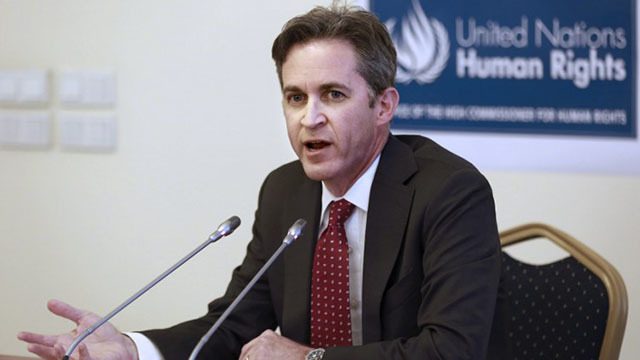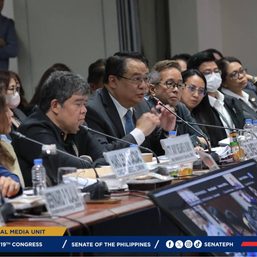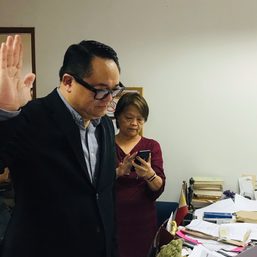SUMMARY
This is AI generated summarization, which may have errors. For context, always refer to the full article.

United Nations Special Rapporteur on the Right to Freedom of Opinion and Expression David Kaye has submitted a defense of journalism brief to the Manila court handling the high-profile cyber libel case against Rappler, its CEO Maria Ressa and former researcher-writer Rey Santos Jr.
Manila Regional Trial Court (RTC) Branch 46 Judge Rainelda Estacio-Montesa will hand down her verdict on the case on Monday, June 15.
Kaye wanted to send in a brief to “provide the Honorable Court with a greater understanding of the role of journalists and the special protection all Member States must accord.”
What Kaye submitted was an amicus brief – expert brief of sorts submitted to the court to help it decide a case. We usually see this in constitutional cases before the Supreme Court, where justices ask amici curiae (friends of the court) or experts to weigh in.
It is rare for an amicus brief to be submitted to a lower court. Kaye’s brief was unsolicited, therefore the court must first admit it, and it must do so before the verdict on Monday.
Kaye urged Judge Montesa to prudently apply the Philippine Cybercrime Law so as not to deter journalists from freely doing their jobs.
Kaye reminded the judge that the Philippines has an obligation under Article 19(1) of the International Covenant on Civil and Political Rights (ICCPR) which protects the right to “hold opinions without interference.”
Kaye adopted the UN’s Human Rights Committee’s position that libel must be decriminalized, saying “it is incompatible with the freedom of expression clause in the ICCPR.
Kaye also noted how Cybercrime Law imposed a one degree higher penalty than its offline counterparts in the Revised Penal Code, which makes cyber libel punishable by jailtime of 6 months and 1 day to up to 7 years.
The Cybercrime Law is silent on the prescription period of cyber libel. It was only 1 year under the Revised Penal Code but the Department of Justice (DOJ) found an obscure law to extend that to 12 years, meaning you can be sued for cyber libel within 12 years of publication.
Businessman Wilfredo Keng filed the complaint against Rappler 5 years after publication.
Constitutional issues
Kaye also hit the Philippine government’s theory of republication. The disputed article was published on May 2012, a good 4 months before the Cybercrime Law in September 2012.
But there was a reflected February 2014 update on the article when Rappler made some previously missed typographical corrections. It was the DOJ’s theory that this constituted republication, and therefore was now covered by the law.
Rappler’s counsels, the Free Legal Assistance Group (FLAG), have argued that the theory of republication would violate the Supreme Court’s ruling on Cybercrime.
The Supreme Court struck out as unconstitutional the part of the Cybercrime Law that punishes “aiding and abetting” in a case of cyber libel. The en banc struck it out for infringing too much on the freedom of speech.
Rappler’s lawyers said that the act of sharing on the internet and the act of republishing are similar in some ways.
“Its potential application to individuals years after the posting of an article, under the guise of online continuous publication, raises particular concerns under the right to freedom of expression. It also serves to restrict online expression in the Philippines much more than offline expression,” said Kaye.
Kaye urged the judge to “narrowly tailor” the Cybercrime Law “in order to guarantee the rights to freedom of opinion and expression.”
The verdict will be handed down in court 8:30 am on June 15. The court has restricted the number of people who may attend the hearing because of the coronavirus pandemic. – Rappler.com
Add a comment
How does this make you feel?





There are no comments yet. Add your comment to start the conversation.